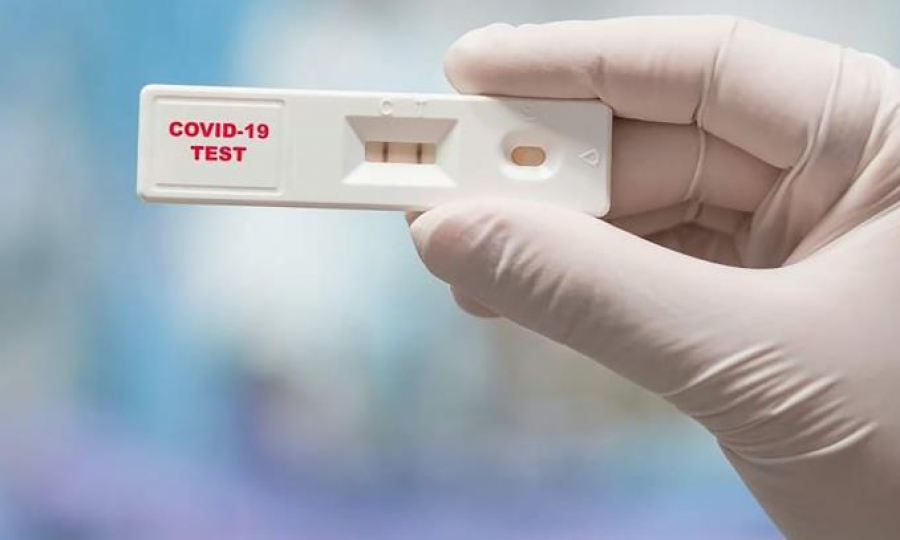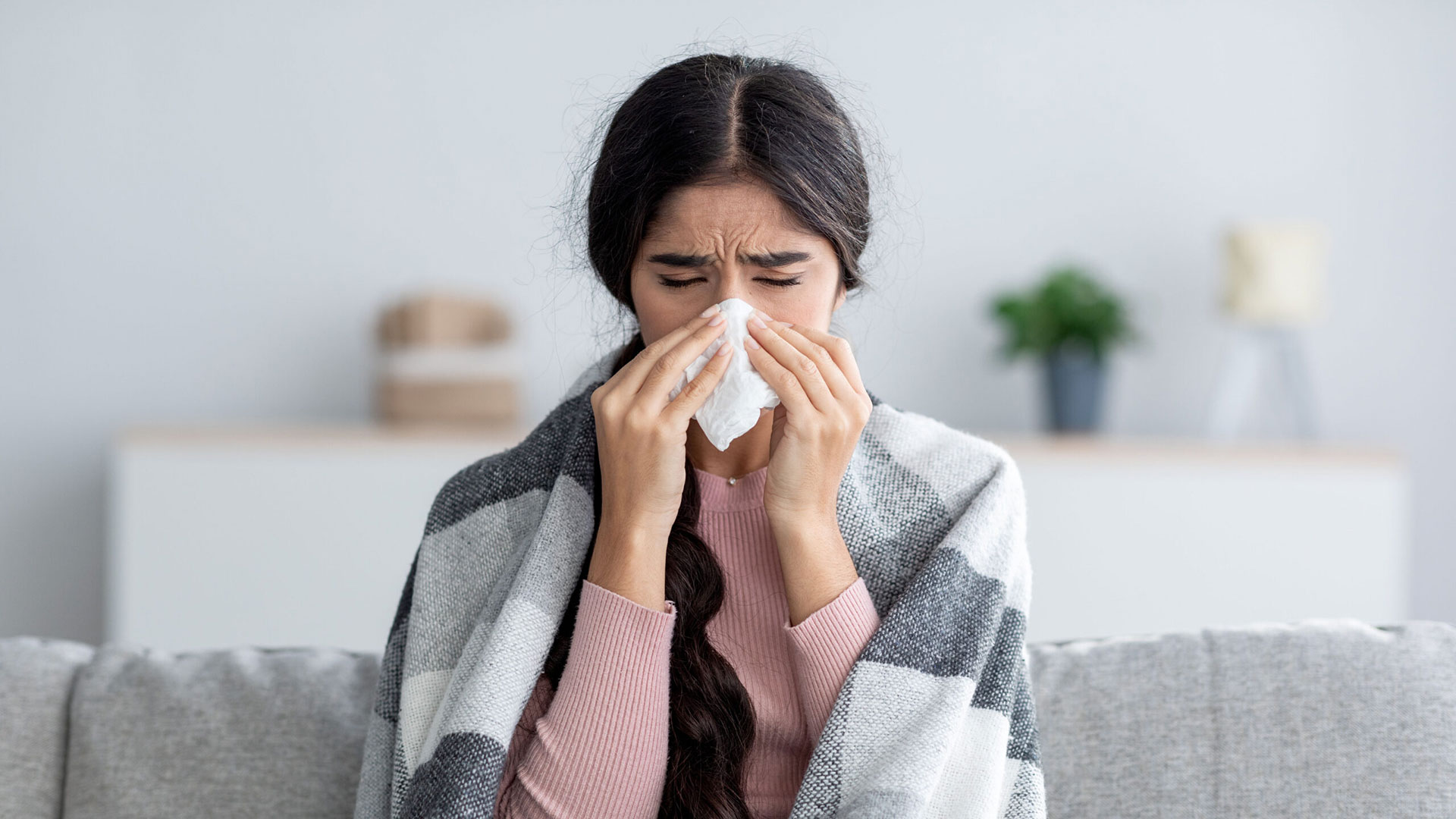
Panagiotis Euripides
Coronavirus outbreaks are increasing in Cyprus and Europe in general, following the emergence of the "Omicron 2" JN.1 sub variant. Experts emphasize the importance of self-protection measures and vaccination of vulnerable groups and the elderly.
However, there is also a need to raise awareness and foster a culture of protection against seasonal and other infections. Officials warn that measures taken by Member States may have negative consequences and backfire instead of preventing the spread of outbreaks.
Outbreaks - Data so far
Dr Maria Koliou, a paediatrician, infectious disease specialist, and member of the Coronavirus Surveillance Committee, told K that there is a surge in coronavirus cases at the moment, as it happens every time a new sub variant appears. She also said that the positivity rate of cases has reached 10%. Dr Elizabeth Constantinou, the Director of Medical and Public Health Services of the Ministry of Health, provided the data for the week from December 26 to January 1 in a communication with K. According to the data, there were 3336 cases, with a significant burden on the elderly over 70 years of age. There was an increase in these groups and in hospitalizations. Dr Maria Koliou noted that most of them are people who have not been vaccinated for a year.

Regarding hospitalizations, the Director of Medical Services said that there were around 80 in the public and private sectors in the last week. She pointed out that there is a surge not only in coronavirus, but in all respiratory viruses by 63%. The increases are mainly in Covid-19, RSV (respiratory syncytial virus), and to a lesser extent in influenza cases.
Regarding the JN.1 sub variant, the Director of Medical and Public Health Services explained that it does not seem to be very dangerous, although a small increase in cases has started until it becomes dominant. "So far, over 50-60% of coronavirus cases involve this sub variant," she said.
The updated vaccine
Since October, the Republic of Cyprus has received the updated vaccine, which is more suitable for the treatment of Omicron and its sub variants, according to the Director of Medical Services of the relevant Ministry. She said, "people need to be vaccinated with the new vaccine because the old vaccine does not cover all the Omicron sub variants."
In addition, mobile vaccination units will visit closed facilities and nursing homes. According to the data so far, the vaccination rate with the updated vaccine for coronavirus is around a low 18%, while for influenza the vaccination rates in the general population are positive, reaching 110 thousand.

Should there be concern? Dr Zoe Dorothea Pana, Assistant Professor of Paediatrics and Hospital Epidemiology, said on the show Diaspora News that the outbreak should not be a cause for concern as long as we are prepared on an individual and collective level. She noted the concerns that exist about how it will evolve on a global and European level.
"I think the most important thing for a smooth treatment is to remember personal protection measures. On a practical level, if a person has respiratory symptoms, they should use a mask and do a diagnostic test. A person who is vulnerable, even if they have had four or five doses of vaccine, does not mean they are protected. It means that people with serious chronic diseases should protect themselves with vaccinations," added the Assistant Professor of Paediatrics.
Self-protection and a change of mindset
At the same time, besides self-protection measures and vaccination, Dr Dorothea Pana also mentioned the importance of changing the culture of a population.
"As long as you impose measures without understanding their essence and meaning at the individual level, we will see reactions. From an early age, we need to change our mindset on prevention in terms of infectious diseases," said the paediatrician, stressing the importance of education and awareness for both the public and health personnel.
The degree of preparedness for a new pandemic
When asked whether Europe is ready to face a new possible pandemic, Dr Dorothea Pana replied that unfortunately not all Member States are ready, noting a gradation by level of preparedness. "The level of preparedness of Member States is not what we would like. There is a departure from what we experienced in the pandemic at the human level. We are not prepared. I think Cyprus has the potential to play the role of a model," he explained.
In the background, the emergence of influenza
Regarding the increase in the number of cases of influenza, Dr Maria Koliou said that the seasonal outbreak will peak within the month, unless measures are taken. She noted that if a person takes self-protection measures for the coronavirus, they are also taking measures to protect against influenza.
The symptoms of the JN.1 sub variant
According to the CDC, symptoms of the JN.1 sub variant include: Cough, sore throat, headache, muscle aches, fever, loss of taste and smell, runny nose or nasal congestion, fatigue, brain fog, shortness of breath, and mild gastrointestinal symptoms (upset stomach, mild diarrhea).
The latest data from the UK Office for National Statistics, from December 2023, suggests that the most commonly reported symptoms among respondents with Covid-19 include: Runny nose (31.1%), cough (22.9%), headache (20.1%), weakness or fatigue (19.6%), muscle pain (15.8%), sore throat (13.2%), sleep problems (10.8%), restlessness or anxiety (10.5%).
Many of the most common symptoms, including runny nose and cough, have been reported in people with Covid since 2020, although the list includes some new additions such as sleep problems and anxiety. In addition, loss of taste and smell - once considered an indicative sign of Covid - is now reported by only 2 to 3 per cent of infected people in the UK.

What does the sudden rise in JN.1 suggest?
The sudden rise of JN.1 suggests that it is either more infectious or better at evading our immune system (immune evasion). However, according to existing data, it does not appear to be more aggressive than other circulating variants, according to the CDC.
According to the US Centers for Disease Control, "it is important to know that existing vaccines and treatments still work well against the JN.1 sub-variant, so this sub-variant does not affect the CDC's recommendations." The new measures
It is recalled that the Ministry of Health, after the meeting of Minister Dr Popi Kanari with the members of the Scientific Committee for Monitoring Covid-19 Disease, decided on the following measures, which are included in a decree:
- Demonstration of a negative rapid antigen detection test for Covid-19 disease, with sampling having been carried out within 48 hours, or a negative laboratory test (PCR) for Covid-19 disease, with sampling having been carried out within 48 hours, for visits to nursing homes, hospitals, outpatient clinics, dental clinics, closed facilities and shelters for vulnerable groups, in persons over 12 years of age.
- The use of a protective face mask is mandatory for all employees and visitors aged 12 and over, in the interiors of nursing homes and other care and hospitality facilities for the elderly and vulnerable groups, as well as in the hospital rooms, outpatient clinics, dental clinics of public and private nursing homes, closed facilities and hospitality facilities for vulnerable groups.
In addition, the Scientific Monitoring Committee makes the following recommendations:
- All positive cases must wear a protective face mask in all places where they move around.
- Workers and residents of nursing homes and other care and accommodation facilities for the elderly and vulnerable groups should be vaccinated through mobile vaccination units of the Ministry of Health.
[This article was translated from its Greek original]































